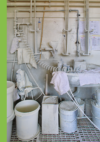In addition to his training as a carpenter, Bernhard Frommelt was a ski club and Nordic coach in his youth and a passionate sportsman. He did long-distance races, duathlon, gigathlon, mountain runs, marathons and cross-country skiing. Since the age of 21 he has worked in the family business ‘Schreinerei Frommelt AG’, of which he is now the managing director. He grew up in Schaan, Liechtenstein, where he still lives and works today – a so-called ‘Ohrenmarkerschaaner’. He has built a total of three houses, is married, has two daughters and is 61 years old.
Where and how did you grow up?
I grew up in Schaan South at the Tanzplatz with four sisters. It was a happy, informal youth with lots of freedom.
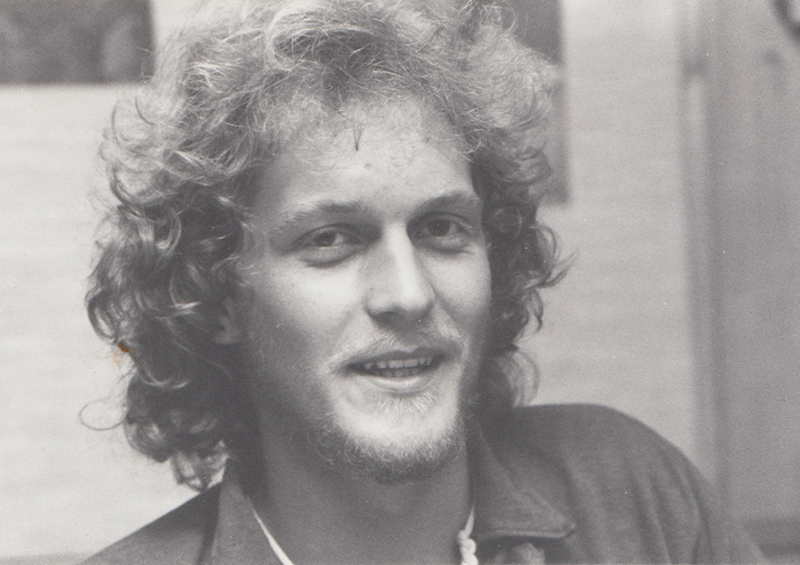
Could you describe your professional background?
The carefree years were two years of nursery school, six years of primary school in Schaan, four years of secondary school in Vaduz and four years of carpentry apprenticeship in Speicher in Appenzell. At 19, I took a four-month hitchhike from Canada to Mexico, across the USA. At 20 I was in Ireland for a fortnight, where I took part in an international professional competition for carpenters. It was a great experience, I got to know other countries’ working methods and mentalities. The Asians organised everything in a military way, while the rest of us were still sleeping they already had to go to early morning sports. If they won a gold medal they were received back in their home country almost like Olympic champions, and they were correspondingly afraid of defeat. The Belgians on the other hand didn’t even know who would be competing until a week before the competition. The Americans don’t have a system of apprenticeships, so everyone had to pay their own travel costs and only participants from wealthy families were there. I exchanged tools with the Taiwanese. It was a valuable experience. Back in Schaan I worked in our carpentry workshop and did all kinds of sports. Sport and colleagues were very important to me, so I did practically no further education. I simply lived. At some point I had to take over the responsibility in the family business. I married late and became father of two daughters. Many things are no longer as easy as they were when I was 20.
Were there certain events or stations that were formative for your career?
The transfer to secondary school. That changed the circle of friends and colleagues.
The four-year apprenticeship in Speicher was not a good time for me.
The trip to the USA.
Building houses.
Getting married and becoming a father.
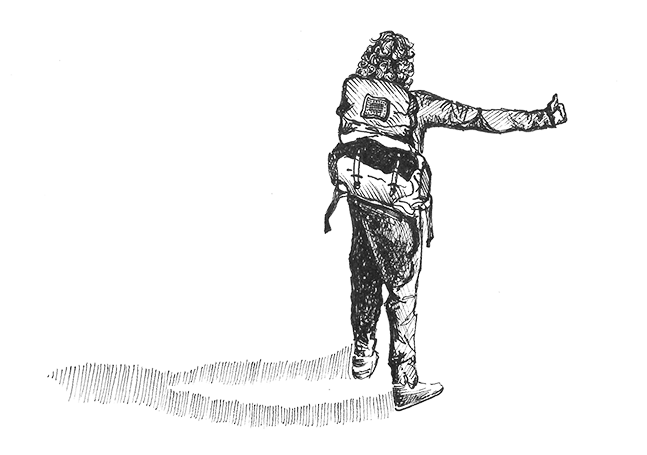
Were there certain people who were formative for your career?
My Nana. Mum. Papa.
Has your environment supported you in your career?
I received a lot of support and could have received much more if I had wanted to. Privately and also from the state, at school etc.
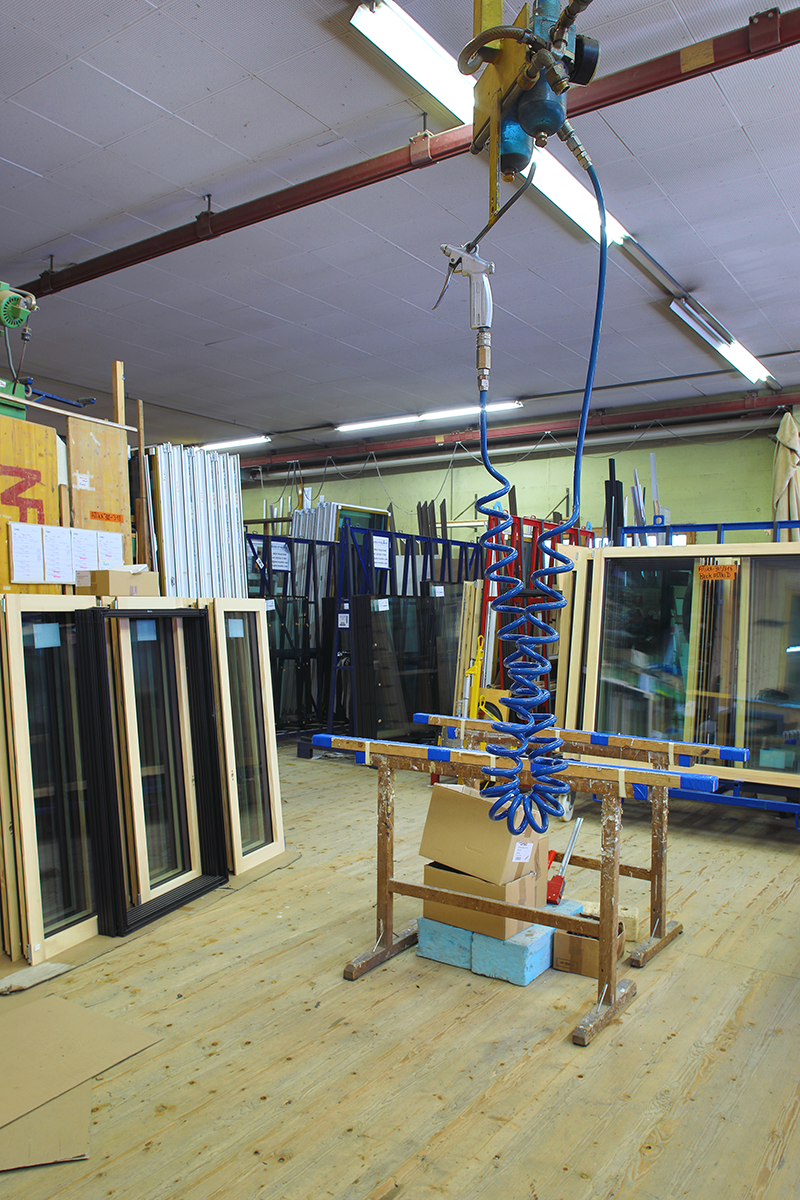
What are your current activities?
Professionally, I am the manager of a carpentry workshop. I do some sport. I pursue leisure activities with our young daughter and my wife.
Does what you are currently doing fulfil you?
To a certain extent.
Private: Since I started a family late, I’m a good 20 years behind in age. That’s nice, but it’s also exhausting at times.
Professionally, the world is too small-minded and too perfect for me.
Recreational sport: I was born in 1959, so a lot of spontaneity has been lost over the years.
Do you think that you yourself have an influence on whether your activities are fulfilling?
I am not a strategist by nature, but by now I have found ways so that I don’t just have to react, but can also determine things. Living for me actually means letting things happen.
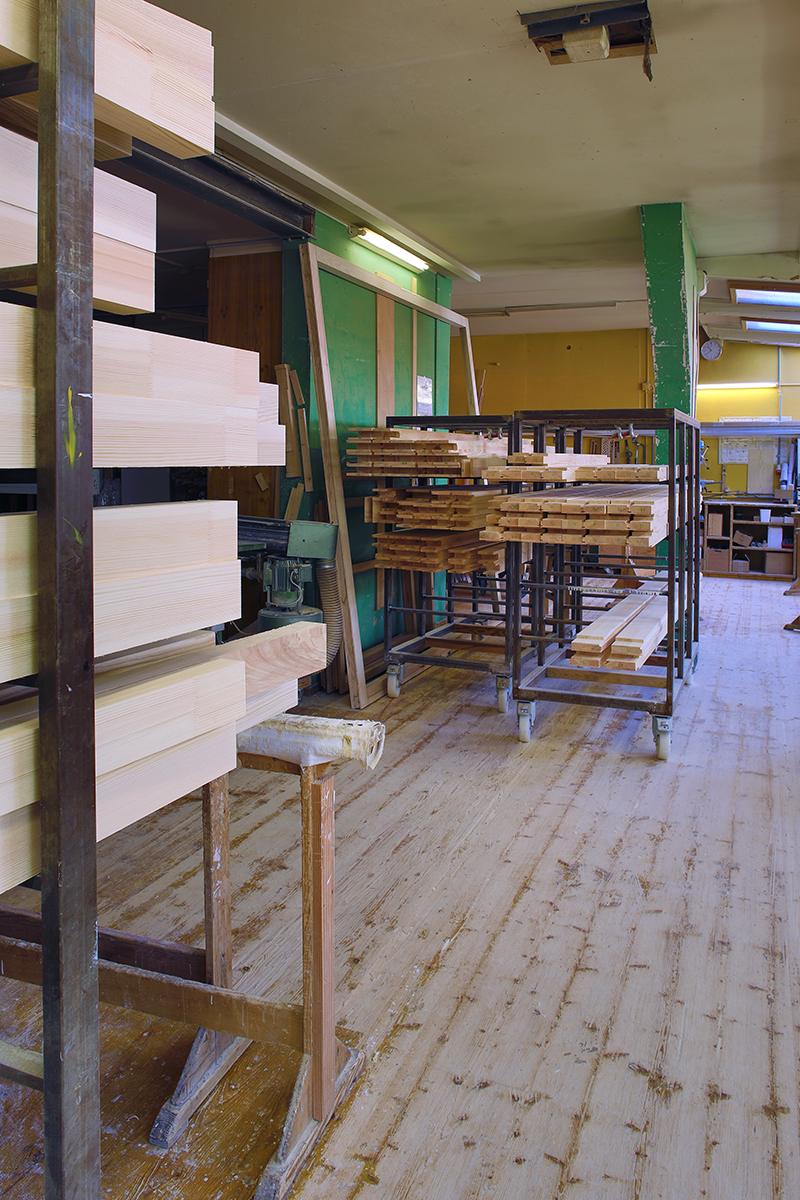
What or who inspires you in everyday life?
My children. Children in general. Nature. Pictures and architecture.
What or who gives you strength and energy in everyday life?
I was brought up with a clear set of values. There were no extreme expectations or pressure from the parental home, but we always had duties. I have internalised that over the years. When I get up in the morning, I never ask about the meaning of the day or life. I get up at the same time every morning and go to work, but apart from that I don’t have any fixed rituals. I see what happens every day. Sometimes the energy is used up early, but if you keep going, something usually recharges the power. It’s a survival mode.
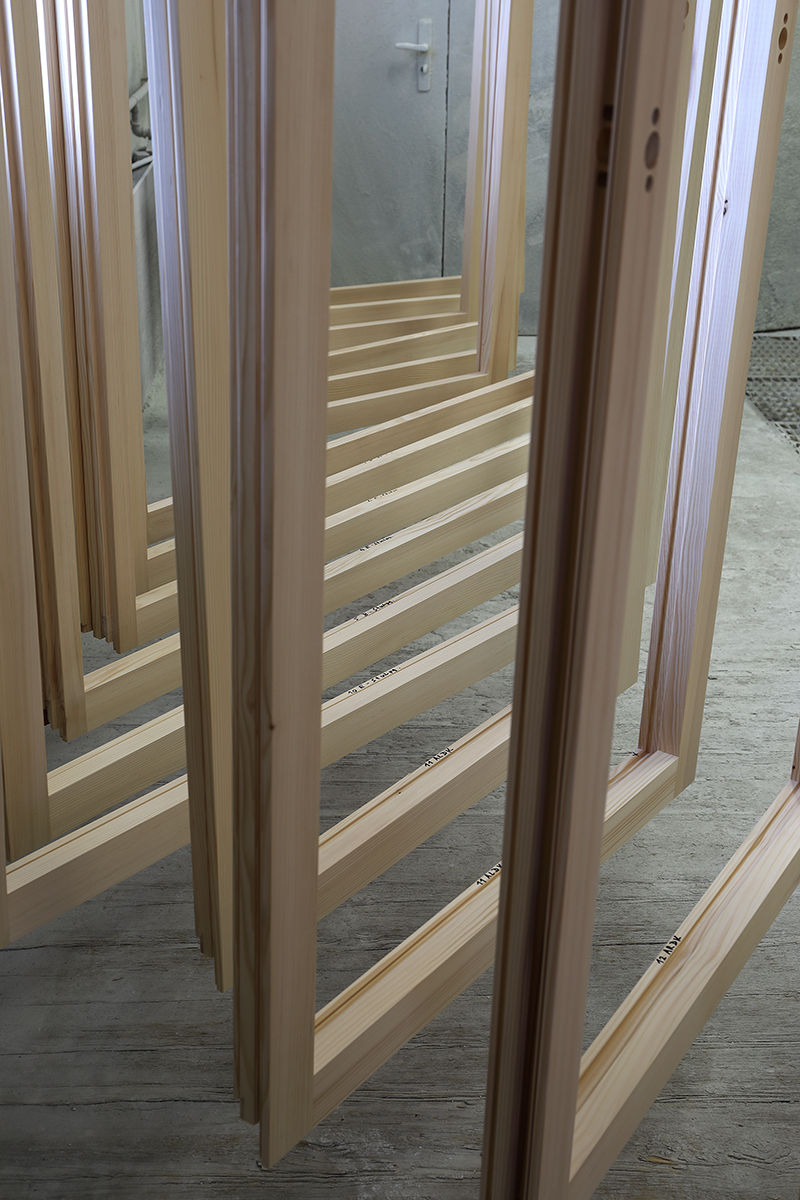
There are ‘magic moments’ when everything seems to fit. Moments that fulfil, inspire and give strength. Moments that confirm that the effort is worthwhile and that what you do is meaningful and valuable. Have you already experienced such moments in relation to your own activities?
I have that sometimes, but I don’t know how to savour it. When these moments come, I feel energy and want to live them out. I should enjoy them and distance myself from everything else. Most of the time however the opposite is the case. Some bad news, a phone call or something like that overshadows these moments, nothing but an emptiness remains, the negative is present.
Magical moments like the birth of my daughters lasted longer, I was in a tunnel to myself.
One of my most magical moments was when I was about 9. Fred Kindle told me at school that there was a staircase in Sargans where you didn’t have to walk. He had been shopping there with his mother. My family never went there. On Saturday afternoon we finally rode our bikes to Sargans, twice over the Lutzisteig, today I don’t remember why. We stood in front of this escalator and were so fascinated. We had never seen it before and examined the staircase closely, riding up and down for hours. We had no money and were starving. At some point there were so many people that we lost each other and everyone was found crying in a corner. With empty stomachs we cycled home again via the Luzisteig, it was pitch dark with no lights. At every class reunion this is a topic between Fred, Roland and me – the event welded us together. The first escalator in the country was at Kaufin in Schaan. The next one, and I think currently the only one, is at the Coop in Vaduz.
Do you actively do something for it, so that such ‘magic’ moments can happen?
Not really, I’m mostly driven by the day-to-day business.
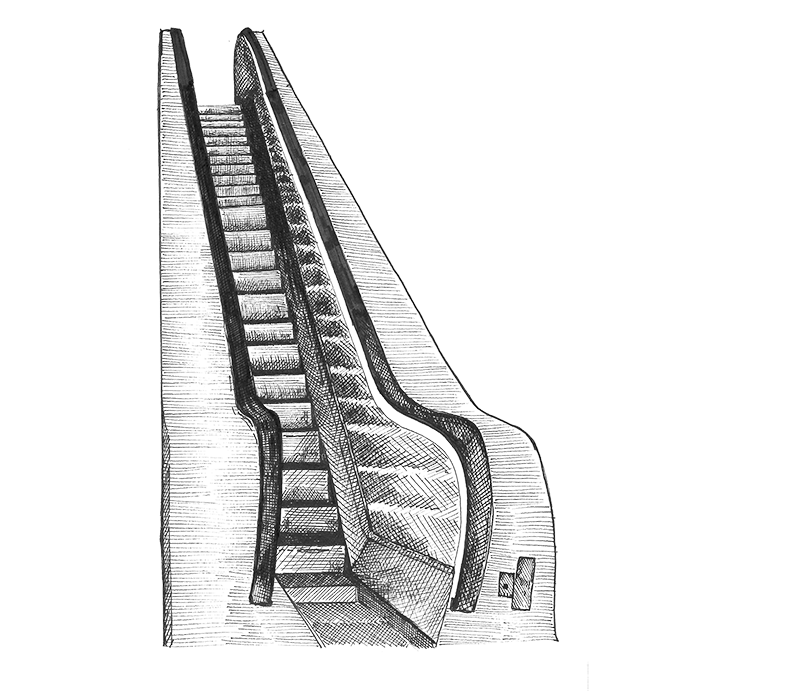
Are there moments when you doubt what you are doing?
There are always those. Especially when I see environmental problems or people who are not on the sunny side, I know how pointless our striving for power, perfectionism and all the materialistic values is. I see how big my footprint is. Three or four years ago we went on holiday. I heard on the radio that by mid-July the world’s resources for that year had already been used up. We live on credit, today the resources are already used up three to four weeks before the summer holidays.
In retrospect, can you find something positive in difficult moments?
Yes. I know the next time, this too shall pass. If you have experienced something before, you always react the same way. The body and mind develop defensive behaviour when faced with similar problems, negative or positive. You can change behaviour patterns in the long term, but you often revert to the old patterns.
Is there anything you would do differently in retrospect?
Little things. I can’t change them anyway. It’s just part of life. I didn’t have any blows of fate, otherwise I would certainly feel differently.
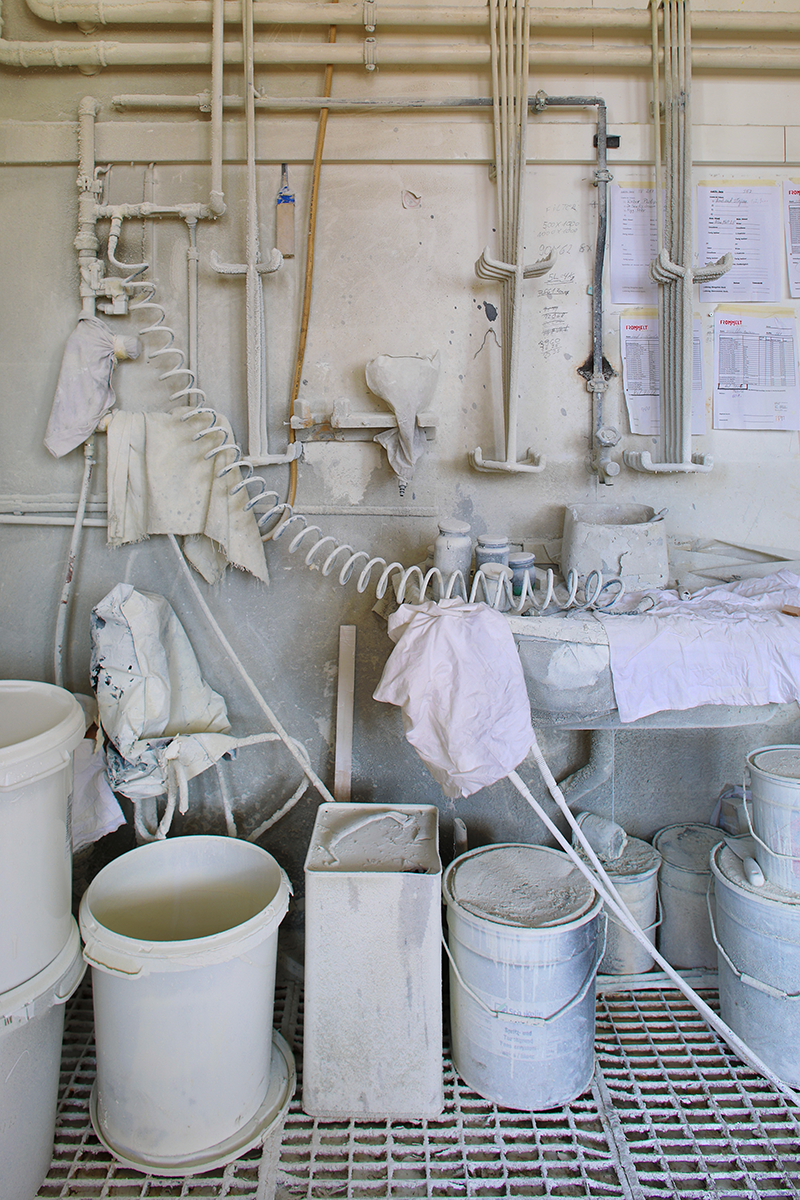
Do you want to contribute to society with your activities?
Yes, I see myself as a link in a chain and I want to contribute. What I would like most is for all of us to be on an equal footing, for example my staff and I. This is practically not possible because my genes, my character and the qualities acquired through my position are those of a hunter rather than a gatherer. It is difficult not to be very assertive at times. I try hard, but the old behaviours always come through.
Is the recognition of other people or the public important to you?
Not really, I never think about it. I never had any role models to emulate in my whole life. I also never had the feeling of being left behind or of having missed out on something. That’s why there was no excessive urge for recognition.
How well can you live from what you do professionally?
Very good, I am satisfied. The influence is certainly there, I can react spontaneously, can also be generous sometimes.
Is there something that is particularly occupying you at the moment?
The environment I am passing on to my daughters. It has been severely strained by my large footprint and has changed. I have used the world, but those who have practically lived with nature and have already suffered from our exploitation will pay first.
Is there something you would like to (increasingly) spend time on in the future?
How we manage to achieve a reversal. How we don’t just prioritise technophilia, digitalisation and perfectionism.
Less is more. Casting off ballast to go through life more easily.
More craftsmanship and satisfying people by working with their hands. We are too cerebral.
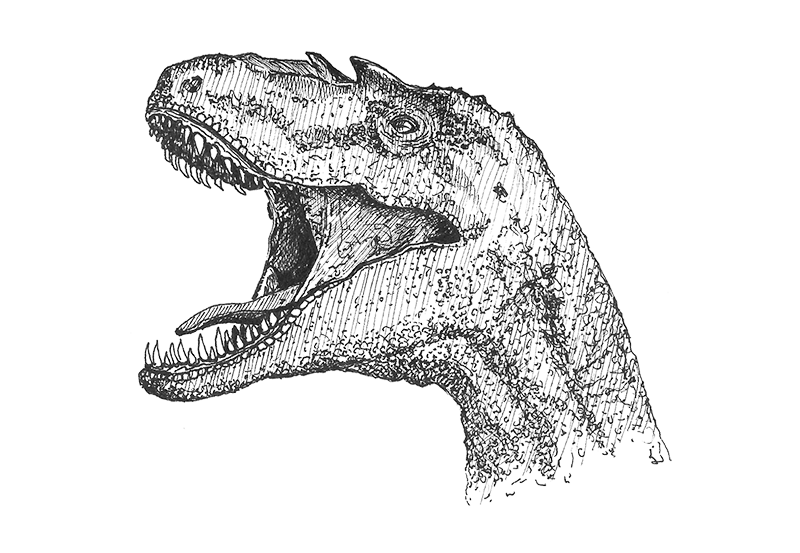
What are you most grateful for in life?
I am 61 years old and have never experienced hunger or war. I had more educational opportunities than I would have liked. So far, I have not experienced any blows of fate.
With all the constraints that exist in a civilised society, I am grateful for ‘our freedom’.
I am thankful that I was born 60 years ago in a real time where everything was still tangible and real, there was no digitalisation, etc. I would like to be 16 years old again, but not in the now.
I’m just a dinosaur.
At the moment I hope for the world that Trump is gone for good. It already looks better than it did.
Interview
Laura Hilti, December 2020
Illustrations
Stefani Andersen
Publication «Über Religion und Politik wird nicht geredet – hier wird gearbeitet.» A project by Kunstvereins Schichtwechsel in cooperation with Schreinerei Frommelt and Verein für Menschenrechte. With photos by Roland Korner, drawings by Nina Georgiev and texts by Toni Büchel. (German)
Credits
Portrait photo: Nicolaj Georgiev
Photo youth: Bernhard Frommelt
Photos carpentry: Roland Korner
This interview is part of the project ‘Magic Moments’ by Kunstverein Schichtwechsel, in which people are interviewed about their careers, activities and their magical as well as difficult moments.
Curated by Stefani Andersen and Laura Hilti, Kunstverein Schichtwechsel.
Supported by Kulturstiftung Liechtenstein and Stiftung Fürstl. Kommerzienrat Guido Feger.
>>> All interviews

